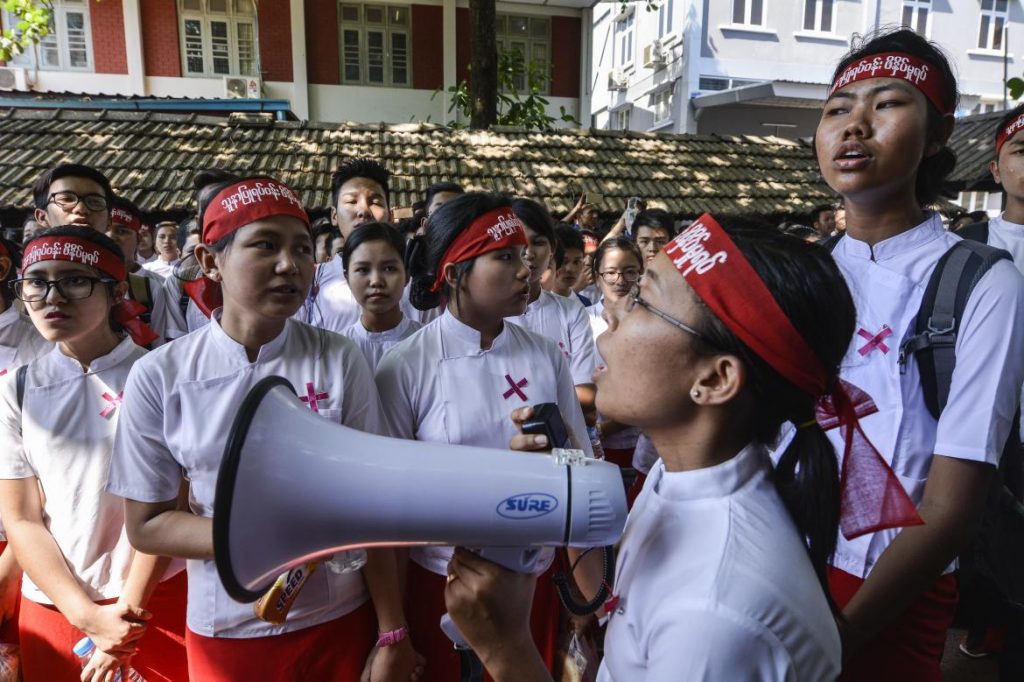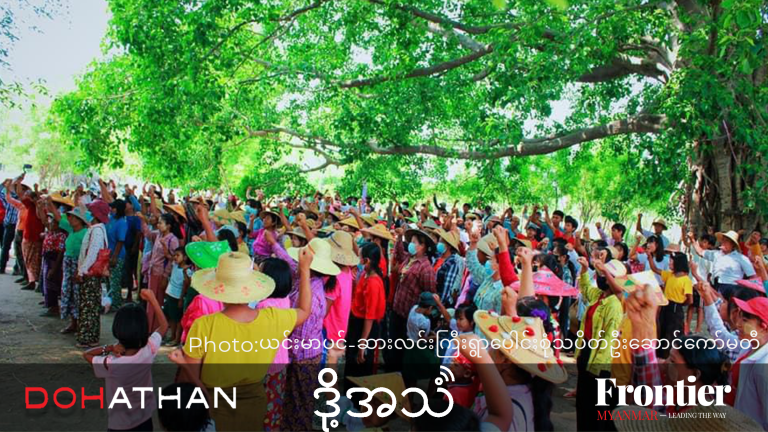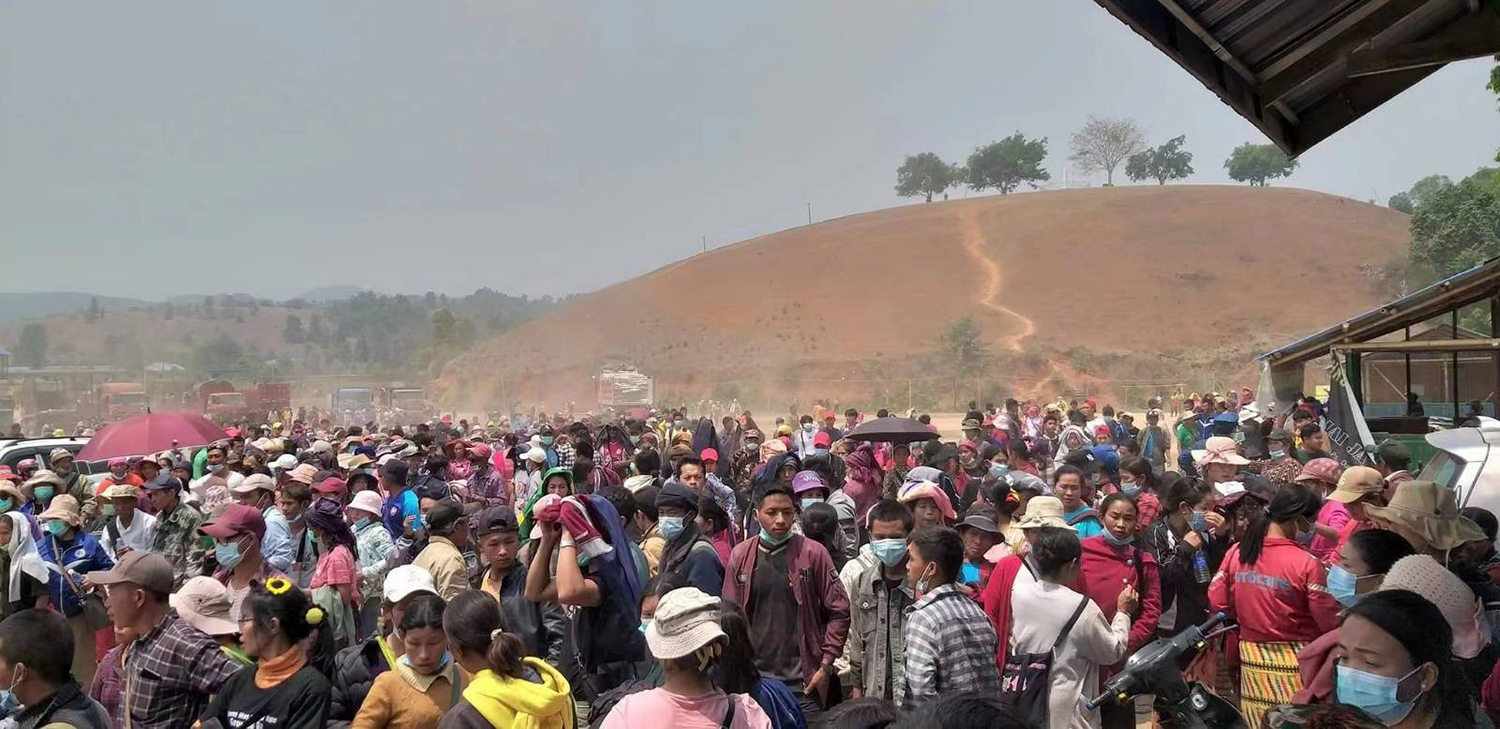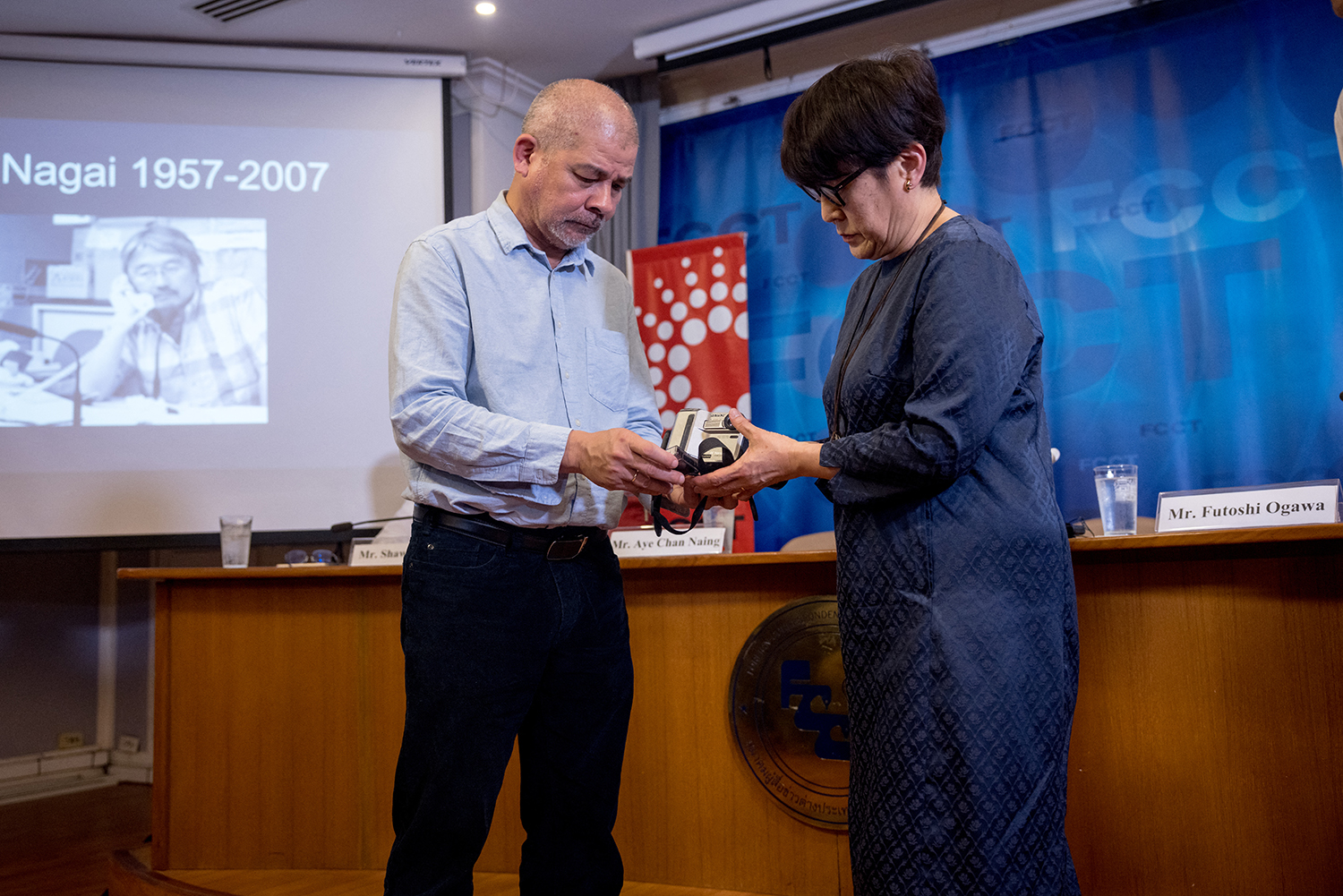Amendments to the Peaceful Assembly and Peaceful Procession Law appear to be a knee-jerk response to recent protests in Rakhine and Kayah states and on university campuses, and threaten to further undermine the NLD’s democratic credentials.
By OLIVER SPENCER & YIN YADANAR THEIN | FRONTIER
BACK IN 2011, a new law giving people the right to protest was adopted as one of the U Thein Sein government’s first steps to prove its democratic credentials. Unfortunately, the law was deeply undemocratic because it required people to receive advance permission from the authorities in order to stage a legal protest. Given the political climate, many activists were not willing to seek permission, which could easily be denied by the authorities anyway. The law soon developed a reputation as a tool for locking up hundreds of political activists.
Two amendments were later passed to bring it more closely into line with democratic standards and address some of the more problematic sections.
But that progress threatens to be undone. On February 20, state media published details of a proposed amendment drafted by the parliamentary Bill Committee that would change four key sections of the Peaceful Assembly and Peaceful Procession Law.
Initially there was astonishment that the amendment had been drafted without any public notice or consultation. But there was also some hope that the bill would finally bring the law up to democratic standards – in particular, by addressing the law’s fundamental problems. These are that it criminalises peaceful protesters, and rather than facilitating safe protests it uses red tape to deter people from protesting at all.
Support more independent journalism like this. Sign up to be a Frontier member.
Those hopes were short-lived. The proposed amendment seems to be a knee-jerk reaction to the recent protests in Rakhine State’s Mrauk-U, Kayah State and on university campuses. In each of these places, the authorities used disproportionate measures to stop protesters who were demanding accountability and reform.
The first change that the amendment proposes is to add clauses and articles that will allow local police to stop a protest if it is deemed to conflict with laws on “national security, rule of law, public order, or public morals”. It gives no indication of which laws the amendment may be referring to.
Secondly, it introduces a new criminal act. Anyone who supports a protest either financially, materially or in other undefined ways faces a three-year prison term and an unlimited fine if the authorities deem that their intention was to “break national security, rule of law, public order, or public morals”. Again, there is no definition of what these terms mean.
Precise definitions are vital to effective and democratic laws. Nobody will argue with the necessity to control a protest if participants undermine public order, such as by rioting or looting. But, equally, nobody can dispute that Myanmar has a long history of using vague laws to arbitrarily arrest anyone for anything. This continues up until this day. Lack of clear definitions – or any definitions at all – has enabled the arbitrary and abusive use not only of Myanmar’s protest law, but also many other laws – section 66(d) of the Telecommunications Law is one timely example.
A clause that says protest organisers must provide the authorities with “an estimated budget and source of funds” is the third proposed change. The motivation behind this is unclear; it may be a belief that opponents of the government are funding protests, or that foreign donors are funding civil society. Regardless, there can be no justifiable reason for such a clause in a democracy. Protests and protesters often receive funding, if only to pay for banners or buses, and it is not the government’s role to decide which sources of funding are legitimate and which are not.
The fourth proposed change is disturbing in its broader implication. It reinforces the fear that the democratic transition is not only stalling but even regressing. The amendment proposes rolling back a key progressive change introduced by the National League for Democracy in 2016.
The 2016 amendment, passed soon after the NLD formed government, made two important changes. It ended the need to get prior permission to protest and replaced it with a more democratic process in which organisers needed only to notify the local authorities in advance. It also added a 15-day deadline for the authorities to bring any criminal charges against protest participants.
The fourth amendment seeks to reverse this 15-day deadline for those accused of having “incited, persuaded, influenced or forced others to protest by giving money or things or any other means of support … with the intention to break national security, rule of law, public order or public morals”.
The amendment bill highlights the NLD’s plummeting democratic credentials. Aside from the regressive nature of the amendments, there was also no consultation whatsoever with civil society or the public.
When the government proposed an amendment to the protest law in 2016, civil society naïvely overlooked the lack of consultation in the hope that, while not perfect, the amendment was a sign of the government’s intention to rapidly reform Myanmar’s deeply anti-democratic laws.
The unwelcome changes in this latest proposed amendment, together with the manner in which it has arrived, kill off what little hope civil society had that the NLD would tackle anti-democratic laws while in office. This time though civil society is not so naïve and is already working on its own amendment that will ensure the law meets international democratic standards once and for all.







